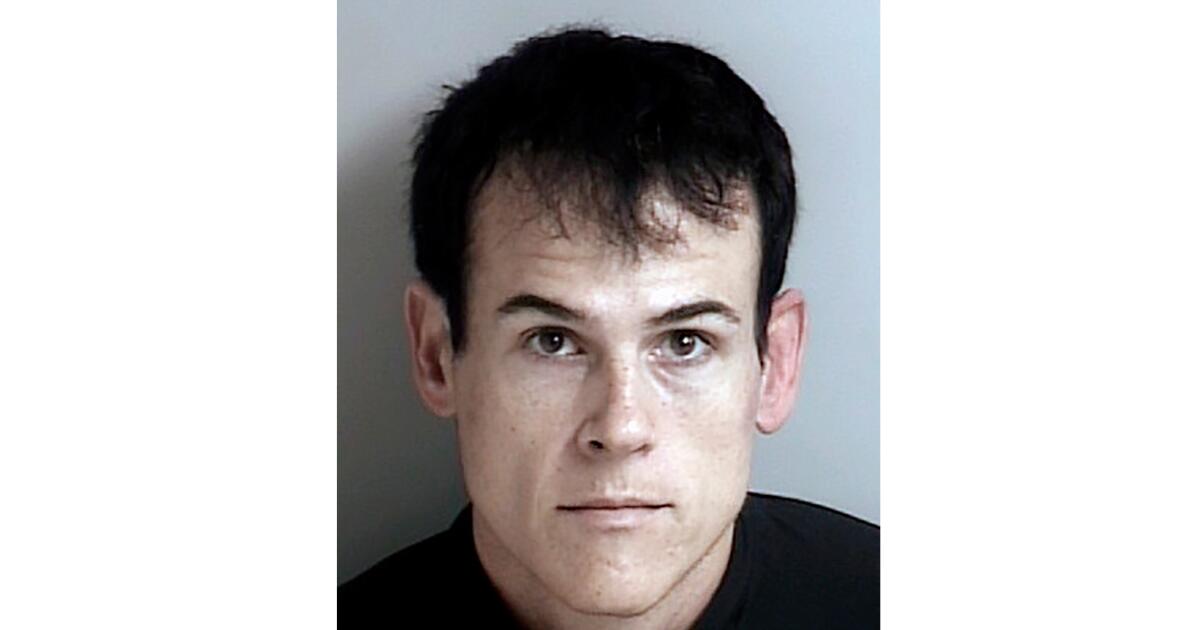A notorious kidnapper whose 2015 crimes — and the subsequent flawed police investigation — were turned into a Netflix documentary has been charged in two new cases committed years ago in the San Francisco Bay Area.
Matthew Muller, 47, appeared in a Santa Clara County courtroom Monday to face charges in a pair of home invasions and attempted rapes that allegedly occurred in 2009. Superior Court Judge Hector Ramon ordered Muller to return to court Jan. 17 to enter a plea.
The first incident allegedly took place on Sept. 29, 2009, when a Mountain View woman in her 30s told police she awoke to find a man on top of her. According to a description of the case from the Santa Clara County district attorney’s office, the man, who authorities allege was Muller, demanded she drink a medicated beverage, then tied her up and said he was going to rape her.
The woman was able to persuade him to stop his assault, according to the district attorney’s office. Before leaving, Muller allegedly told her that she should get a dog for protection.
About three weeks later, on Oct. 18, 2009, a woman in nearby Palo Alto awoke to find a man on top of her, according to the district attorney’s office. The woman was tied up and forced to drink Nyquil by her assailant, alleged by authorities to be Muller.
Again, the woman was able to persuade him to stop, according to prosecutors. And again, before leaving, he gave the woman “crime prevention advice,” according to the district attorney’s office.
“The details of this person’s violent crime spree seem scripted for Hollywood, but they are tragically real,” Santa Clara County Dist. Atty. Jeff Rosen said in a statement. “Our goal is to make sure this defendant is held accountable and will never hurt or terrorize anyone ever again.”
Muller was previously charged and convicted in an infamous case that is the subject of a new Netflix documentary, “American Nightmare.”
In that case, Muller broke into a Vallejo home in March 2015 and drugged and bound a couple, Aaron Quinn and Denise Huskins. Muller blindfolded them with swim goggles and gave them medicine to make them sleepy. He put headphones on Quinn and played recordings designed to make Quinn think he was dealing with more than one kidnapper.
Muller then put Huskins into Quinn’s car and drove off with her, eventually taking her to his family’s cabin in South Lake Tahoe. He held her there for two days and sexually assaulted her, before driving her across California and releasing her in Huntington Beach.
Initially, Vallejo police dismissed Quinn’s account of his girlfriend being spirited away by a kidnapper — or kidnappers — who put headphones on him and made him drink a substance that made him sleepy. Officers interrogated Quinn for hours, brushing aside his story and theorizing he was behind her disappearance.
When Huskins turned up, police grew more suspicious, questioning how a kidnapping victim could reappear hundreds of miles away wearing sunglasses and carrying an overnight bag.
Huskins “did not act like a kidnapping victim,” retired Vallejo Police Capt. James O’Connell later said in a sworn statement.
Police tried to get Huskins and Quinn to turn on each other and admit there had been no crime, offering immunity to whoever flipped first, according to statements from their family members.
Then, police went public with that sentiment. “There is no evidence to support the claims that this was a stranger abduction or an abduction at all,” Police Lt. Kenny Park said in a statement at the time. “Given the facts that have been presented thus far, this event appears to be an orchestrated event and not a crime.”
However, less than three months later, evidence gathered from a June 5, 2015, home invasion robbery in the Bay Area community of Dublin helped authorities link Muller to the kidnapping. That case led authorities, including Alameda County Det. Misty Caruso, back to the Muller family’s South Lake Tahoe cabin, where they found, among other things, Quinn’s computer, goggles and tape with a strand of long blond hair.
Huskins and Quinn, who later married, sued the Vallejo Police Department for defamation and reached a $2.5-million settlement in 2018.
Muller, a Harvard-educated lawyer and former Marine, pleaded guilty in 2016 to kidnapping Huskins. In 2022, he pleaded guilty to additional charges of sexually assaulting her. Until he was transported to Santa Clara County to face the new charges, he was serving his 40-year sentence at a federal prison in Tucson.
Many involved in the Vallejo case had long feared there were additional victims.
Among them was El Dorado County Dist. Atty. Vern Pierson, who had tracked the case because Huskins initially was held in South Lake Tahoe. Pierson has become a vocal critic of police interrogation methods in which detectives form a theory of the case and aggressively pursue a confession from their primary suspect. He said he was dismayed that Quinn said he had been treated as a suspect rather than a victim when Huskins was kidnapped.
Pierson invited Quinn and Huskins to speak at a symposium he held this year to teach a science-based interviewing technique that focuses on gathering information rather than breaking suspects. He said he was contacted by a friend of the couple who urged him to look into additional crimes Muller may have committed.
Pierson agreed to get involved and said he worked with a number of law enforcement agencies, including the FBI. He added that the investigation is “still ongoing” and he expected additional revelations in the next few weeks.
Santa Clara County prosecutors said they began investigating the 2009 cold cases after “following a new lead,” and coordinated with police departments in Palo Alto and Mountain View to have all evidence in the two cases sent to the county crime lab for further testing. Muller’s DNA was found on straps that were used to bind one of the victims, according to county authorities.
